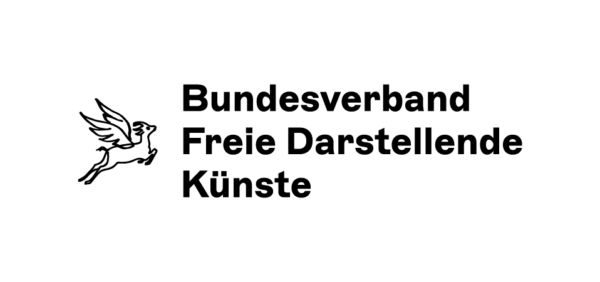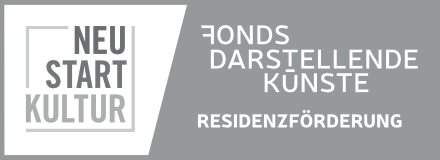
Friday… Again: We have a plan; we will meet our friends to make music and dance on the harbour. We meet in the evening and share food, dances, musical styles, at the edge of the water. We manage to create an atmosphere of sharing where people feel invited to observe, to be near to us and even step into our dance, sometimes even from the distance. The night develops into a constant exchange of rhythmicalities and body knowledge, by the celebration of our encounter with each other. We fuse instruments and learn songs from the other.
We enjoy, but at the same time, there are reasons to be uncomfortable. This is a group of composed by only male, and the atmosphere seems to be charged with not only testosterone but prejudices as well, unfortunately. Our needs to express our femininity, from all male and female identifying people in our group seems to become a barrier to be able to completely enjoy the evening comfortably and safely. There is no clear sign of rejection towards our queer friends, but also not a clear openness to share with them. Female identifying slowly feel the spaced being taken and overcrowded by male energy until the feeling of discomfort and tiredness takes over. This is not the first time this happens, last weekend was similar, just in a circumstance a bit more distanced from us. We talk about this, during the whole weekend, and beyond that: how do we allow our femininity to be part of these spaces, and feel safe? What are the boundaries and negotiations we need to make in situations like this? Where is the space where we can be what, and how, we want to be? The thoughts about allowing femininity to be an important part of our lives grows more and more into the development of this work, and we wonder how to allow it grow inside of our skin. What does it mean to each of us to embody femininity to feel safe and empowered? What is the imaginary that keeps on occupying our minds.

The “real” weekend starts shakily: our plans of going to the Ball in Hamburg get knocked out, it seems we are energetically drained. We want to see with our own eyes the transformation and empowerment practices of fabulous femmes on the voguing ball stage. However, our bodies don’t allow it: we are tired, the weeks have been long and the pauses that we have from our research are completely illusory. The ongoing rain and darkness erasing the summer felling adds to this, and our only resource is to meet in the big kitchen to have some comfort food and support each other.
On Sunday it gets worse, news of war in Ukraine and acquaintances met by these circumstances make the feeling gloomier than the weather could ever make. Our wishes to move together in the studio wash away. Why are this news not shown in general media anymore? Living in a place out of context, surrounded by people who are totally uninformed of the social and political circumstances of others feels extremely alienating and painful. It might seem that we are not directly affected by political circumstances in other countries or regions, but dear people around us are, and this is a responsibility of care that we need to take in our hands. It seems it becomes an educational task for us to make visible that we are all in fact affected by of this, and that the happenings on the planet reverberate greatly and in many different ways.
How to care, and how to empower ourselves? How can we be radically soft and nurture each other in situations like this? What are the boundaries we need to have and to respect in regard to our sufferings?
We cuddle up in bed, and the only thing that we can think is to have a lazy Sunday film day for the sake of the group. We missed the ball, unfortunately, but we can still watch something that can inspire us, and maybe give us some hints on how to grab into our power and how to connect to our wildest and softest parts. What are strategies that lead us to be more “feminine” and be in our full dominion? Let’s get under the covers and watch “Paris is Burning”.
The week starts again, and we mix together the things we have been doing during the past weeks. Sebastian starts the training this Monday and we develop this practice into how to use our arms using flamenco, katak, belly dancing, and passing through. We go to the harbour to practice our choreography outside: and people join us! How do we keep this mood of letting people know they are invited to be inside of our practice? How does this connect to our understanding of folk dance practices? Are we creating a ritual just by going daily to the harbour to practice? If we did this for a longer time, would more and more people feel invited to join?
During our studio work, we practice training our bodies, warming up the space between each other and to let crystalise the relations of our bodies in the space, and what kind of landscapes they create. We need support from the rest of us to keep a certain level of physical energy while we take inspiration from forms of urban dancing (or city folk?), to give each other more. We keep on practicing our collective rhythm creation as we train together in the space and outside. This week is about lifting each other’s spirits up, and we have no other choice than to do the same with the people we are showing our research to.
The week keeps on going, and in 2 days our “Making Off” takes place. Everything that has happened throughout the residency is present and living in our bodies, and as we go out of the theatre with the group of people who came to witness our work, we invite them to be actively there with us. Knowing that what we have to share and what we are envisioning for our future practice and the development of this project is still too fragile to be shown, we get to craft our works and our wishes in the form of a collage, a practice that will be in the future translated to our performance.

What our audience witness during this little showing is not a creation for the public, but the crystallisation of our little rituals throughout the weeks. We create a situation where joy can be part of our everyday life, of the public space and of our individual and collective bodies. Sharing the space and the movement as we walk in the city, the members of our audience become performers as much as we are.
Our last day after the showing, we come together to talk and reflect about this process. Many thoughts about organisation of infrastructures, and basic questions of art and performance making come out in our zoom with our flausen+ guide. More to that on our final report, thank you for reading..!

flausen+headquarters
Alexanderstraße 124
26121 Oldenburg
flausen+gGmbH
Klävemannstraße 16
26122 Oldenburg
Das überregionale Netzwerk flausen+ wird gefördert von der Beauftragten der Bundesregierung für Kultur und Medien über das Programm “Verbindungen fördern” des Bundesverbands Freie Darstellende Künste e.V.
Gefördert vom Fonds Darstellende Künste aus Mitteln der Beauftragten der Bundesregierung für Kultur und Medien im Rahmen von NEUSTART KULTUR.
Gefördert vom Fonds Darstellende Künste aus Mitteln der Beauftragten der Bundesregierung für Kultur und Medien.



